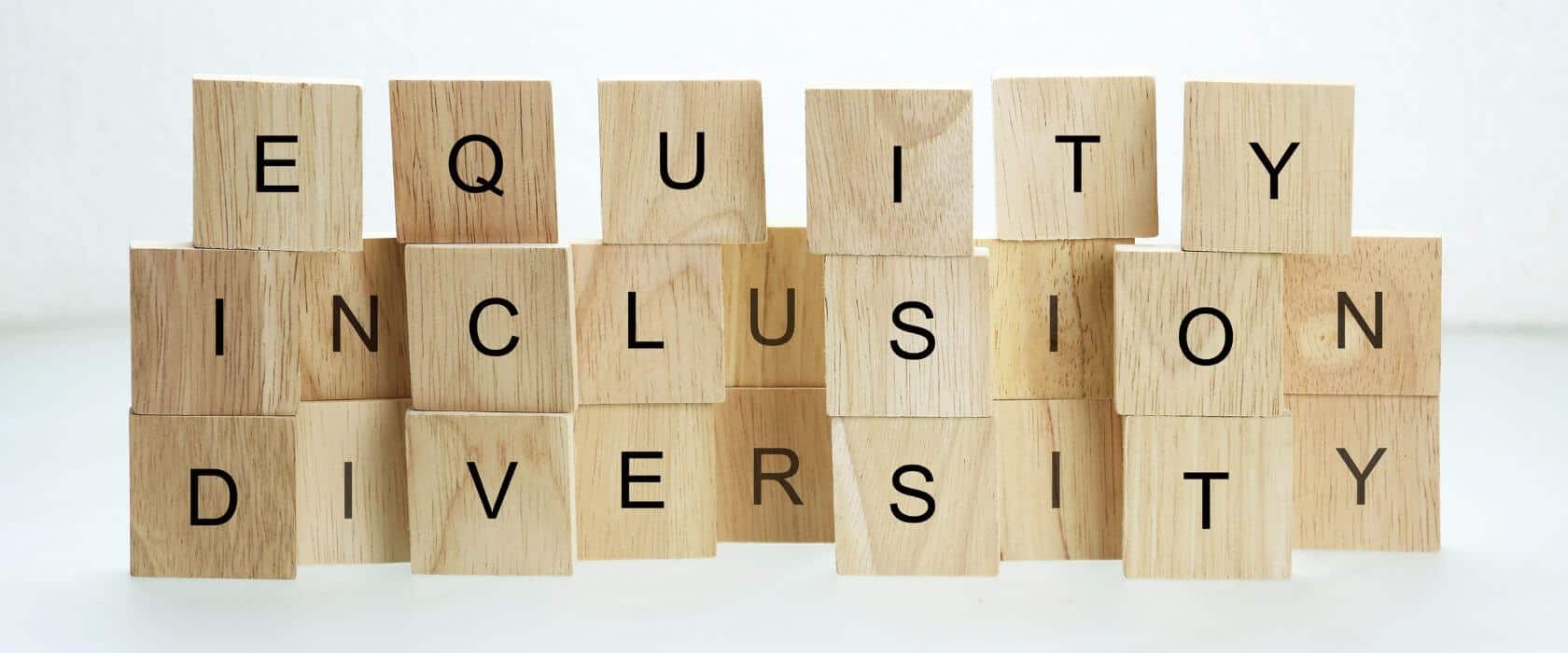How will Trump’s DEI Rollback Affect Higher Education?
Diversity, Equity, and Inclusion (DEI) initiatives have long fostered inclusion and ensured equitable academic access in higher education. However, following the recent executive orders in the United States handed down to the Department of Education by the Trump Administration, many institutions are facing significant changes.
As a result, these shifts are prompting educational institutions to explore innovative ways to uphold their diversity commitments while complying with new regulations, emphasizing adaptability and strategic foresight.
Evolution of DEI: The Contribution of Diversity, Equity, and Inclusion To Higher Education
For decades, universities have invested in DEI programs to ensure equity, inclusion, and accessibility for all students. These initiatives have contributed significantly to many areas of higher education that benefit wider society as a result.
Gender Diversity
Many business schools have significantly increased the percentage of women in their programs. Stanford’s Masters programs have 47% female graduates, showcasing notable gender diversity in higher education. Increasing representation has encouraged women to pursue leadership roles in traditionally male-dominated fields.
Financial Aid & Scholarships
Universities have provided scholarships to historically underrepresented groups, increasing access to quality education. The University of Michigan’s Go Blue Guarantee provides full tuition for in-state students from families earning under $65,000. Such programs demonstrate how targeted financial support creates tangible opportunities for socioeconomic mobility, enriching campus diversity in the process.
A Diverse Workforce
Many corporate recruiters favor graduates from universities that prioritize DEI, valuing their ability to work in diverse environments. Deutsche Bank prioritizes hiring professionals with diverse cultural experiences, making academic diversity crucial for corporate recruitment strategies. A diverse workforce fosters innovation, drives better decision-making, and enhances organizational performance.
Academic Research & Innovation
DEI initiatives fuel research in social equity, racial justice, and inclusive workplaces. Stanford’s Michelle R. Clayman Institute for Gender Research leads in advancing gender policy discussions. USC’s Race and Equity Center drives social justice conversations. Research at these institutions shapes global conversations, influencing public and corporate policies significantly.
Impacts Of Trump’s Executive Order On DEI Policy in Higher Ed
Trump’s executive order has led to immediate and long-term consequences for universities.
Budget Cuts & Resource Reductions
Texas A&M, one of the largest higher education groups in the US, and the University of Florida have eliminated DEI offices and reduced funding. This funding loss reduces programs supporting marginalized students, including mentorships, networking events, and specialized faculty hiring. As universities reassess priorities, they must balance financial sustainability with fostering inclusive learning environments.
Hiring & Admissions Changes
Some institutions no longer consider diversity statements in faculty hiring and student admissions. This shift may reduce faculty diversity, limiting students’ exposure to varied perspectives and research approaches. University of North Carolina, hiring changes raise concerns about faculty representation, with fewer diverse hires in recent cycles.
Legal Concerns & Compliance Risks
Many universities are reviewing DEI policies to ensure compliance and avoid potential lawsuits. Schools promoting DEI must navigate legal frameworks while finding alternative ways to foster diversity. In Florida and Texas, DEI funding restrictions caused universities to restructure policies to reduce legal risks.
Institutional Responses
Some schools integrate DEI into “student success programs” or “inclusive leadership initiatives” to comply with regulations. This approach helps them maintain diversity commitments while adapting to policy changes. The University of California embeds DEI into academic excellence instead of keeping standalone DEI offices.
Some institutions are resisting these changes, while others are adjusting policies to avoid losing federal funding. The long-term effects of these executive orders will become evident in years to come however, some experts say the proposed changes are under investigation by higher education groups and border on breaching the First and Fifth Amendments of the US Constitution.
The Divide: Perspectives From Experts And Supporters
While there may be valid arguments for and against DEI programs in higher education, the answer to this issue remains uncertain. Here is a summary of both sides of the debate:
Arguments Against DEI
Concerns About Reverse Discrimination
Experts say DEI programs create unfair advantages, giving priority to some demographics over others instead of evaluating candidates on merit.
Financial Accountability Issues
Universities spend millions annually on DEI programs, with opponents questioning their effectiveness. Experts argue that reallocating these funds to research, infrastructure, or general student support initiatives provides broader benefits.
Political Influence & Ideological Debates
Some claim DEI policies push ideological narratives rather than foster true inclusivity. Some believe universities should focus on education rather than political or social activism.
Arguments In Favor Of DEI
Economic & Innovation Benefits
Research shows that diverse teams perform better and drive innovation. Companies with diverse leadership teams tend to outperform those that lack diversity when it comes to revenue growth and market expansion.
Equal Access to Higher Education
DEI programs have helped historically marginalized groups enter and thrive in higher education. Without these programs, many students may not have had the opportunity to pursue degrees at top-tier institutions.
Employer Demand for DEI Skills
Employers like Maximus Inc. and Unisys value graduates who are skilled in leadership and cultural competency. Forbes recognized Maximus as one of the top employers for diversity in 2023.
Unisys achieved a perfect score on the 2021 Disability Equality Index. Also named a “Best Place to Work for Disability Inclusion”, Unisys is among many corporations emphasizing the benefits to organizations for DEI programs. As businesses expand globally, DEI-trained graduates are in higher demand for executive and managerial roles.
Future Of DEI: Alternative Approaches
While federal policies may be shifting, universities can still promote diversity through alternative approaches:
Prioritizing Socioeconomic-Based Initiatives
Schools can refocus financial aid on low-income students rather than race-based programs. This ensures that students from all backgrounds have equitable access to education without violating legal mandates.
Expanding need-based scholarships can help maintain campus diversity without running afoul of restrictions. Research shows that admissions based on socioeconomic status can sustain racial diversity. For example, at UCLA, socioeconomic-based strategies helped retain minority representation after California’s affirmative action ban.
Rebranding DEI as Leadership & Global Competency
Instead of explicitly using DEI terminology, universities can emphasize leadership, teamwork, and global perspectives. Many companies prefer employees with strong cross-cultural communication skills, making such programs valuable beyond their original DEI scope.
A recent study found cross-cultural competency ranked among the top most desirable workplace skills, highlighting the universal value of these programs.
Expanding Student Support Networks & Mentorships
Institutions can create mentorship programs that pair students with professionals from various industries. Such programs enhance career preparedness and ensure underrepresented students have access to professional guidance.
Students involved in mentorship programs are 55% more likely to enroll in graduate programs or gain leadership positions in their chosen fields.
Corporate Partnerships & External Funding
Many private companies remain committed to DEI and may provide funding for universities looking to continue offering diversity-related initiatives.
Collaborating with businesses that value inclusive workplaces can sustain scholarships and leadership programs. In 2023, Fortune 500 companies collectively allocated over $2 billion toward DEI initiatives, demonstrating significant corporate interest and support.
Schools can expand outreach to encourage applications from students in underserved communities. Expanding partnerships with local schools and non-profit organizations can help maintain a diverse applicant pool despite policy restrictions. Targeted recruitment and community engagement have increased applications from underrepresented groups.
Global Context: Higher Ed DEI Beyond US Borders
Globally, universities continue emphasizing DEI to attract international students and maintain competitive academic standards. More specifically, European and Canadian institutions uphold DEI strongly, indicating the necessity for American universities to sustain competitive diversity practices internationally.
The Path Forward: Adapting to a New DEI Landscape
Although recent policy shifts present challenges, they don’t spell the end of diversity efforts. Institutions proactively adopting creative, compliant strategies will successfully maintain vibrant, inclusive campuses.
Universities that continue prioritizing diversity and inclusivity through adaptive practices will lead in higher education innovation, positioning themselves strongly within a globally competitive environment.
Stay ahead of Industry Trends with our student insights from masters all over the world.







